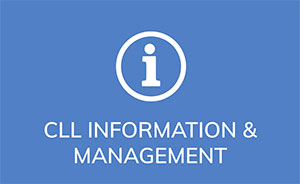It would be easy if resources were unlimited, but until that is the case, hard choices need to be made about who has access to limited resources.
It’s politely called triaging.
On the battlefield with scarce resources, medics may have to decide which of the many needy wounded soldiers gets urgent transport off the battlefield and which ones are either too well or too sick to get one of the coveted golden tickets to safety.
When the ER and ICU beds are filling fast, spots are reserved for those who have the best chances of recovering.
In a pandemic with scarce resources, governments, medical institutions, and healthcare providers have had to make decisions and/or policies about allocating potentially lifesaving therapies among the many outpatients who might benefit from them.
CLL Society and many others fought successfully to ensure that Evusheld, a therapy used to prevent COVID-19, received emergency use authorization (EUA) for only the immunocompromised and not as a vaccine alternative for those refusing COVID-19 immunization.
Maybe it’s time to preemptively look at the same tough choices and limits for COVID-19 therapeutics until there is an adequate supply. For example, should the limited supply of antibodies or antivirals available for treatment be prioritized for the one-third or over 100 million Americans who have chosen not to be fully vaccinated even if vaccination would have protected them from the virus? If we do that, it could leave very few, if any, doses left for the three to seven million immunocompromised citizens who were vaccinated but remain unprotected through no fault of their own and who, because of their medical condition, have a well-documented higher risk of developing severe disease and even dying from a COVID-19 infection.
That is the thrust of the argument made by Govind Persad, PhD, JD, and Emily A. Largent, PhD, JD, RN in their JAMA VIEWPOINT article: COVID-19 Vaccine Refusal and Fair Allocation of Scarce Medical Resources.
My short supportive commentary was edited by JAMA and then published. You can read it at the same link if you scroll down to the bottom past the references.
CLL / SLL is a cancer of the immune system. As my commentary stated, some of us have no other choices. Is it fair to let those who do have other options knock us out of line? What we want above all is access for all who might benefit, but until we have adequate supplies, hard choices will need to be made.
Tough ethical questions lie ahead.
Stay strong. We are all in this together.
Brian Koffman MDCM (retired) MS Ed (he, him, his)
Co-Founder, Executive VP, and Chief Medical Officer
CLL Society, Inc.

















